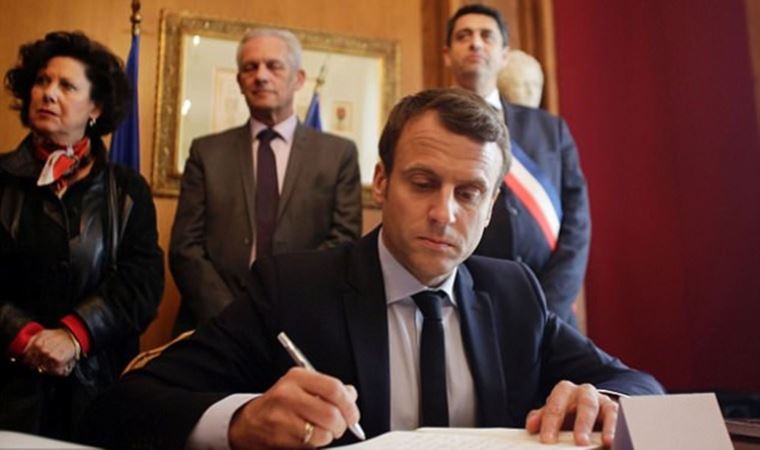France's President Macron signs controversial pension reforms into law
French Constitutional Council finishes review of reform bill, which includes raising retirement age from 62 to 64 by 2030.

France's controversial pension reform plan was signed and officially promulgated in the Official Journal on Saturday.
President Emmanuel Macron signed the bill after the Constitutional Council finished its review on Friday evening, despite calls by trade unions to drop the measure that has drawn weeks of protests across the country.
The nine "sages," as they are known in France, partially approved the bill while rejecting six of its measures, including on senior workers.
The bill includes raising the retirement age from 62 to 64 by the year 2030, with workers and trade unions, among others, vehemently opposing the plan.
Before the ruling was issued, President Macron said he intended to hold a meeting with trade unions at the Elysee Palace, "whatever the verdict may be," according to media reports citing the presidency.
Unions declined the invitation and said mass mobilization would continue.
The government unveiled the reform proposal in January and it was taken up for parliamentary debate the following month, even as millions took to the streets to oppose it.
Unrest intensified when Prime Minister Elisabeth Borne, after consulting with Macron, decided to use special constitutional powers to adopt the bill without parliamentary approval in mid-March.
The decision was driven by fear that lawmakers would be able to block the reforms as the government lacks an absolute majority in the legislature.
Most Read News
-
 Spain hits back at Trump's tariff threats, warns it woul
Spain hits back at Trump's tariff threats, warns it woul
-
 Italy ready to contribute to international stabilization
Italy ready to contribute to international stabilization
-
 Israeli forces raid Syria’s southern countryside
Israeli forces raid Syria’s southern countryside
-
 Conflicting reports from Israeli media on opening of Gaz
Conflicting reports from Israeli media on opening of Gaz
-
 Israeli prime minister returns to court for corruption t
Israeli prime minister returns to court for corruption t
-
 US county declares emergency over federal immigration ra
US county declares emergency over federal immigration ra
-
 Gabon president’s party secures parliamentary majority
Gabon president’s party secures parliamentary majority
-
 US Senate fails to advance Republican bill, prolonging g
US Senate fails to advance Republican bill, prolonging g
-
 Trump announces start of 'phase 2' of Gaza deal
Trump announces start of 'phase 2' of Gaza deal
-
 Syria seeks to strengthen, restore ties with Russia: Pre
Syria seeks to strengthen, restore ties with Russia: Pre










